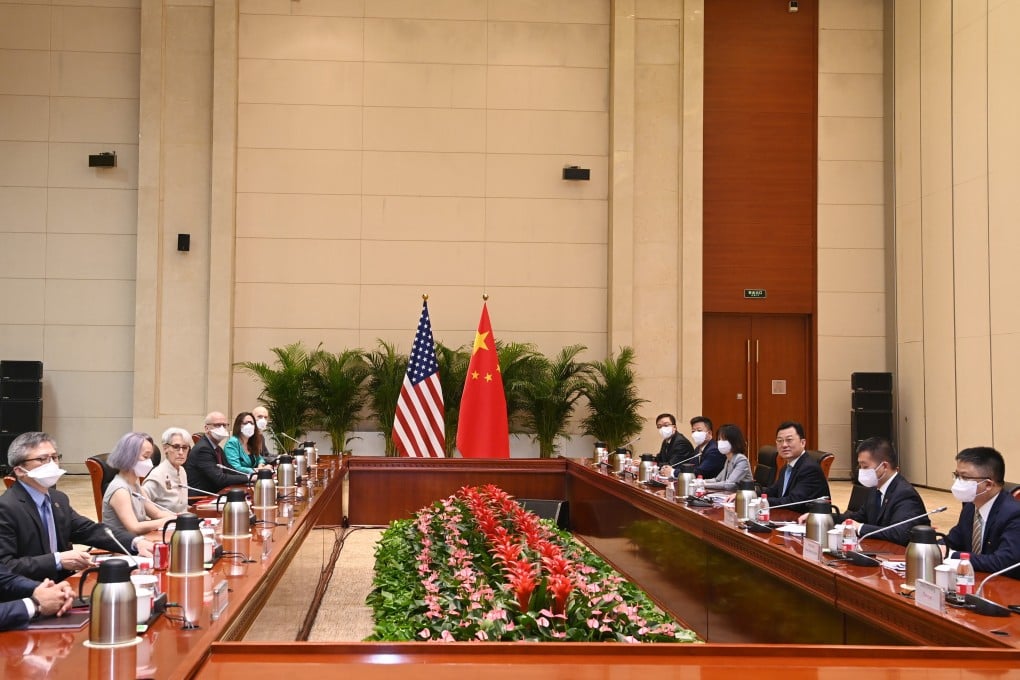Advertisement
China’s demands to US: starting point to ease tensions or a path to more conflict?
- Lists of ‘wrongdoings’ and ‘grave concerns’ given to visiting deputy secretary of state Wendy Sherman
- Analyst says some of the issues are ‘low-hanging fruit’ and concessions could be made
3-MIN READ3-MIN
40

Beijing’s move to set out demands for Washington in their latest talks suggests it is taking a more pragmatic approach to handling tense relations with its rival, according to analysts.
They say it could be a starting point to improve the fraught relationship, but it could also lead to more conflict if the demands go unmet.
Chinese foreign vice-minister Xie Feng said two lists were given to visiting US deputy secretary of state Wendy Sherman in Tianjin on Monday.
Advertisement
One sets out “wrongdoings” that China wants the US to correct, including lifting visa restrictions on Communist Party members, dropping its request to extradite Chinese tech executive Meng Wanzhou from Canada, and ending a requirement for Chinese media to register as foreign agents in the US. A separate list of “grave concerns” includes cases of Chinese student visas being rejected, according to the foreign ministry.
In a separate meeting with Sherman, Foreign Minister Wang Yi called on the US not to challenge or seek to subvert China’s model of governance, to lift sanctions imposed over Xinjiang and Hong Kong, and to respect the country’s sovereignty and territorial integrity.
Advertisement

Advertisement
Select Voice
Select Speed
1.00x